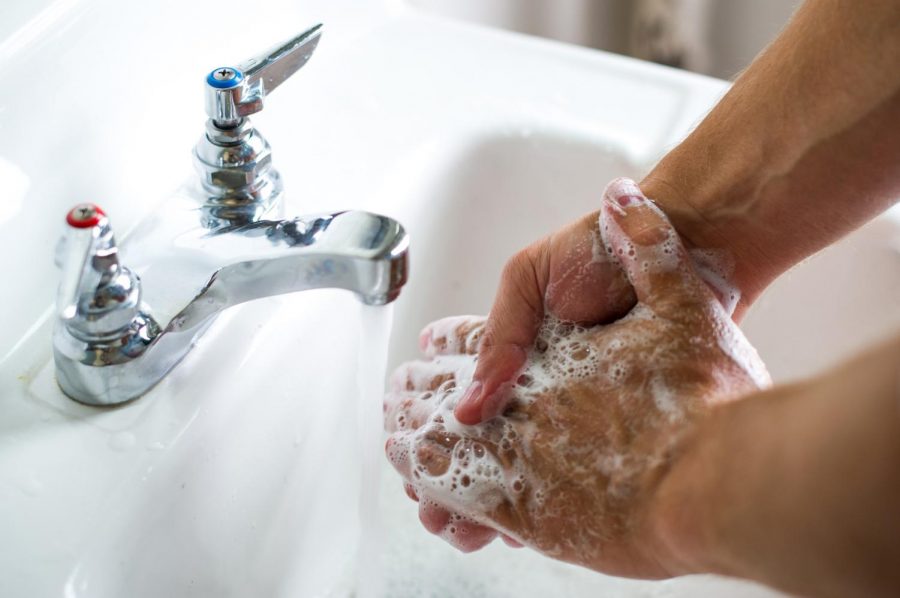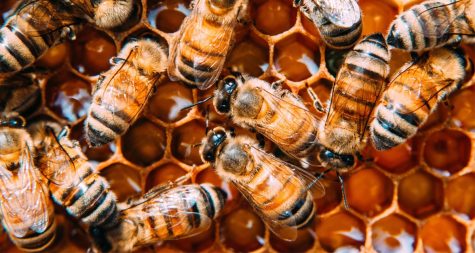The Science Behind Handwashing
Wash your hands! You’ve probably heard this phrase a million times these past few weeks. Experts on the news have been saying it, social media sites have been reminding you of it, a teacher might have said it to you, and a parent or sibling possibly yelled it at you. I even saw a car commercial recently that ended with a reminder of it. A logical question after being told to wash your hands by someone that many people ask is why? Why is everyone telling you to wash your hands? Why is it the number one thing experts are recommending, along with social distancing?
Hand washing is such a big deal because viruses, along with bacteria and germs, get on, and stay on your hands. While COVID-19 is mainly spread person-to-person or through droplets in the air when an infected person coughs or sneezes, ongoing research is saying that COVID-19 can stay on plastic and stainless-steel surfaces for around three days, which is what most everything is made of. For example, if someone with the virus opens a door, then you open the same door after them, then the virus is now on your hands since it got left there went the person before you touched the door handle. Now, when you eventually touch your face, since most people touch their face every two to five minutes, the virus ends up inside you, injecting its genetic material into your cells, and now you’re another unfortunate person with this new strain of the coronavirus.
But how does water and soap stop the virus? COVID-19 is enclosed in a lipid bilayer, a layer of fat. Soap can break up the lipid bilayer, causing the virus to be destroyed since its components are held together by weak covalent bonds. The key here is that soap breaks up the virus, not water. Water cannot break up the lipid envelope, because of the same reason water cannot mix with oil. That is why just rinsing your hands with water is not effective, you really just need to use soap, along with water.
So, how do you wash your hands correctly? The CDC has five steps they recommend for clean hands. First, wet your hands with running water, turn off the tap, and apply soap. Water temperature does not seem to affect the efficiency of getting microbes off, but using cooler water normally causes less skin irritation and is more environmentally friendly. So is turning off the water while you wash your hands. Since few germs are transferred when you touch the faucet you don’t need to worry about getting more microbes, and you’ll just wash away any you pick up. You can use any soap, antibacterial or not, since there is no data supporting that antibacterial consumer soap works any better than normal soap. The next step is to rub your hands together for 20 seconds, ensuring that you get the backs, lower palms, and under fingernails and fingernail beds, since those are the most missed spots. Scrubbing for at least 20 seconds is key because that is about of time it takes for most microbes to be scrubbed off. 20 seconds is about “Happy Birthday” twice, “ The ABCs”, “Twinkle, Twinkle, Little Star”, the “Imperial March” from Star Wars, along with the choruses to “Truth Hurts” by Lizzo, “Jolene” by Dolly Parton, “Love on Top” by Beyoncé, “Africa” by Toto, “This Land is Your Land”, and the Bee Gee’s “Staying Alive” (the CPR song). After your 20 seconds concert, rinse your hands under running water. There is no need to turn the faucet off with a paper towel, since, stated above, there is evidence to back warranting the waste of a paper towel. Now that your hands are all clean, make sure to dry them, since germs can be transferred to and from wet hands easier than dry ones.
Alcohol-based hand sanitizers do approximately the same thing as soap and water, but washing your hands is much better. If you only have hand sanitizer, make sure it is at least 60% alcohol, then use the normal hand washing steps to clean your hands.
At the end of the day, the main message is to keep your hands clean. Washing your hands will slow the spread of the virus, stop you and others from getting infected, and it’s just good practice. If you want more information regarding handwashing, the YouTube channel Vox made a video titled “How soap kills the coronavirus,” which gives you a visual representation of how handwashing works on the virus. You can also visit the CDC’s website, cdc.gov, which has lots of information regarding handwashing and COVID-19. To summarize, wash your hands!







